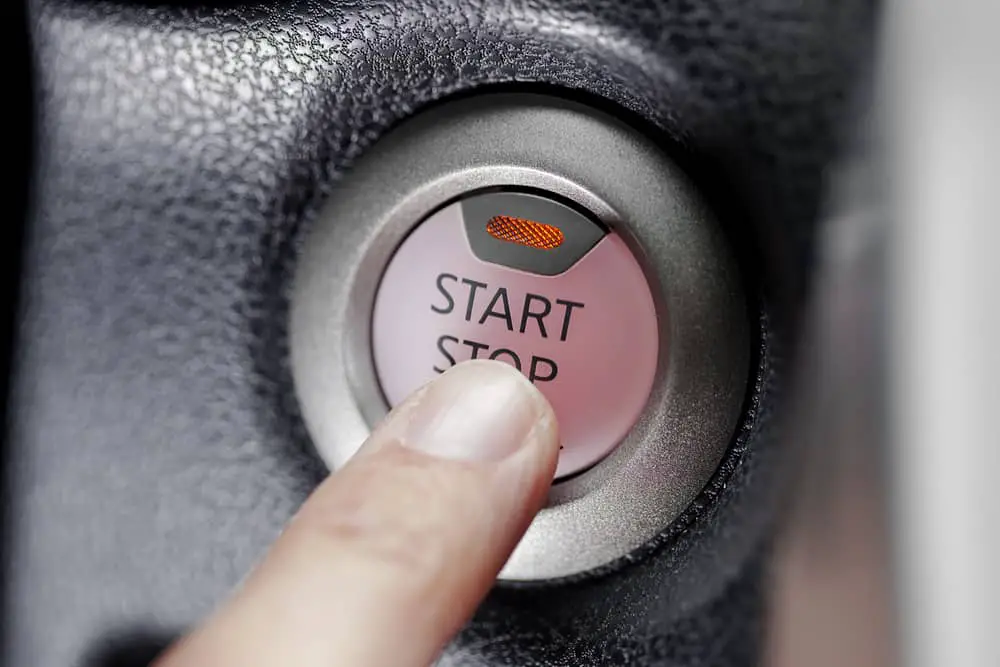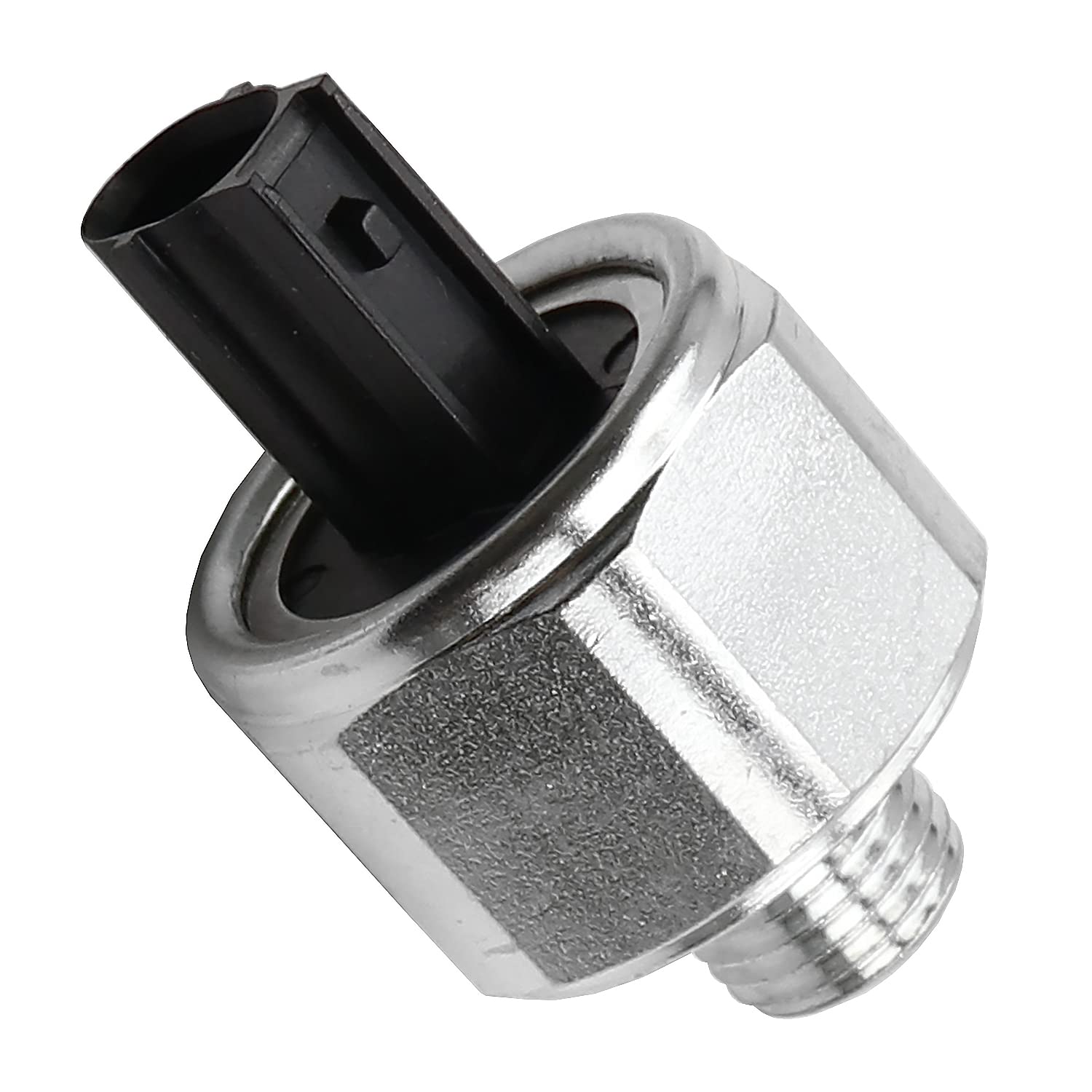Ever faced the frustration of your car taking its time to start up?
You’re not alone.
The struggle of a slow-starting car is a common issue many drivers encounter.
In this article, we’ll explore the reasons behind the sluggish start-up, aiming to shed light on the delayed ignition.
Picture this: you’re in a rush, turn the key, and the engine seems to hesitate.
Why does it happen, and what can you do about it?
Let’s break it down together.
Whether you’re a car enthusiast or just someone tired of waiting for your ride to kick into gear, we’ve got answers that might just improve your understanding of why cars sometimes drag their feet at the start.
Get ready to demystify the slow start-up blues!
Why Does My Car Start Up Slow?
1: Battery Health
What role does the battery play in the car’s starting process?
Think of your car’s battery as its heart. It gives that initial burst of power needed to get the engine going. When you turn the key, the battery sends stored electrical energy to start the engine. It’s like a spark that sets everything in motion.
How does cold weather affect battery performance?
Cold weather isn’t a friend to your battery. The low temperatures slow down the chemical reactions happening inside, making the battery a bit sluggish. It’s like your car needing extra time to wake up on a chilly morning. Knowing how cold weather affects your battery helps you understand those slow starts.
When should I consider replacing my car battery?
Batteries don’t last forever. If you notice your engine struggling to start, headlights dimming, or a weird smell near the battery, it might be saying, “I need a break.” Normally, car batteries work well for about 3-5 years, but it can vary. Keep an eye out for signs, and if you spot trouble, it might be time for a new battery.
2: Starter Issues
Ever turned the key and felt like your car hit the snooze button? It might be pointing to your starter motor. Let’s dive into the nitty-gritty of starter issues and how to tackle them.
What are common problems with the starter motor?
Your starter motor has a tough job – it gets the engine rolling. Sometimes, though, it faces issues. One common glitch is a worn-out gear, preventing it from meshing correctly. Other troubles include electrical problems or worn-out solenoids. Knowing these hiccups can help you diagnose what’s keeping your car in bed.
How can I identify if my starter is failing?
Your car’s dropping hints if you pay attention. If you hear a clicking sound when you turn the key, or if the engine cranks slowly, your starter might be waving a red flag. Dimming lights and a whirring noise without ignition are also signs. Keep an ear out for these signals – your starter might be trying to tell you it needs a checkup.
Are there any DIY solutions for starter issues?
Feeling a bit handy? Some starter issues can be tackled DIY style. Check for loose connections around the starter. If you’re confident, tapping it gently with a tool might shake loose any stuck gears. However, if the problem runs deeper, it might be a job for the pros. Knowing your way around simple starter fixes can save you a tow to the mechanic.
3: Fuel System
Ever wonder if your car’s fuel is playing hide-and-seek with its performance? Let’s break down the fuel system mysteries and get your engine purring like a contented cat.
Can a low fuel level impact the car’s start-up time?
YES. Your car’s engine needs fuel to fire up, and a low fuel level can disrupt the process. When the tank is running on fumes, it might take a few extra tries for the engine to catch. Keeping a decent fuel level is like ensuring your car isn’t starting the day on an empty stomach.
What role does the fuel pump play in the starting process?
Think of the fuel pump as your car’s bartender. Its job is to deliver fuel from the tank to the engine. When you turn the key, the fuel pump starts pouring the liquid energy, enabling the engine to kick into action. A healthy fuel pump ensures a smooth start, while a struggling one might leave your engine thirsty.
How often should I clean my fuel injectors?
Your fuel injectors are like tiny chefs, spraying the right amount of fuel into the engine for combustion. Over time, they can get clogged with deposits, affecting performance. It’s like trying to breathe through a stuffy nose. Cleaning them every 30,000 miles or as recommended in your car’s manual keeps the fuel flowing smoothly, ensuring your engine runs at its best.
4: Ignition System
The ignition system takes center stage in orchestrating a swift and efficient start-up. Let’s delve into the mechanics of this critical system.
How does the ignition system contribute to the start-up speed?
The ignition system is the virtuoso conductor, transforming electrical energy into the spark that ignites the fuel-air mixture in the engine. This combustion sets the wheels in motion, propelling the start-up sequence. A well-functioning ignition system ensures this transition is seamless, translating into a brisk and responsive start-up.
What are signs of ignition system problems?
Recognizing potential issues with the ignition system is paramount. Symptoms such as difficulty starting the engine, frequent stalling, or an erratic idle are red flags. Unusual engine noises or a sudden drop in fuel efficiency can also indicate ignition troubles. Being attentive to these signs allows for timely intervention, preventing further complications.
Can spark plugs affect the car’s starting time?
Yes. Spark plugs, integral components of the ignition system, play a pivotal role in generating the spark needed for combustion. Over time, spark plugs can wear out, resulting in weakened sparks or misfires. This deterioration directly impacts start-up time, causing delays and hindering the overall performance of the ignition system. Regular inspection and replacement of spark plugs contribute significantly to maintaining optimal start-up efficiency.
5: Engine Health
The overall health of your engine stands as the linchpin for a reliable start-up performance. Let’s dissect the connection between engine well-being and the ease with which your vehicle springs to life.
How does the overall health of the engine impact start-up performance?
Picture the engine as the powerhouse of your vehicle. A robust and well-maintained engine ensures efficient combustion, optimal compression, and fluid operation of components. When your engine is in peak condition, it effortlessly responds to ignition signals, leading to swift and reliable start-ups. Conversely, an ailing engine, burdened by issues like poor compression, insufficient lubrication, or faulty components, can manifest in sluggish starts.
Are there specific engine problems that lead to slow starts?
Indeed, certain engine maladies can impede the start-up process. Issues such as a weakened battery, malfunctioning starter motor, fuel delivery inconsistencies, or compromised ignition systems can all contribute to delayed ignition. Addressing these specific problems through timely diagnostics and repairs is instrumental in restoring optimal start-up speed.
What regular maintenance can improve engine performance?
Routine maintenance serves as the engine’s healthcare regimen. Regular oil changes, air filter replacements, and consistent checks of essential fluids (such as coolant and transmission fluid) maintain the engine’s lubrication, cleanliness, and overall functionality. Periodic inspections of belts, hoses, and the exhaust system prevent potential hiccups. Additionally, adhering to manufacturer-recommended service intervals ensures that minor issues are addressed before they evolve into significant problems, ultimately enhancing overall engine performance and, consequently, start-up efficiency.
6: Environmental Factors
In your car’s performance, environmental factors—particularly weather—take center stage in influencing the start-up experience. Let’s unravel the connection between weather conditions and your vehicle’s ignition efficiency.
How does weather affect the car’s start-up time?
Weather wields a considerable influence on your car’s start-up speed. In colder climates, the engine oil thickens, and the battery faces increased resistance, both contributing to slower starts. Conversely, in extreme heat, components may expand, affecting the precision of mechanical processes. Understanding these weather-induced changes provides insight into the potential delays during start-ups.
Are there specific conditions where slow starts are more common?
Indeed, certain weather conditions can be more challenging for start-ups. Cold temperatures, especially below freezing, are notorious for causing sluggish ignition. However, extreme heat can also pose difficulties, particularly in regions with high temperatures. Additionally, high humidity levels may contribute to moisture-related issues in the ignition system, affecting start-up efficiency.
What precautions can be taken in extreme weather?
Preparedness is key in extreme weather conditions. In colder climates, using a block heater or parking in a garage can mitigate the impact of low temperatures on engine components. For hot climates, regular maintenance checks on the cooling system and ensuring the battery is in optimal condition are crucial. In areas with high humidity, protecting electrical components from moisture and rust becomes imperative. Timely inspections and addressing potential issues before extreme weather sets in can significantly enhance the resilience of your vehicle’s start-up performance.
7: Electrical System
The car’s electrical system operates as a behind-the-scenes maestro, orchestrating the symphony of components needed for a seamless start-up. Let’s shed light on the impact of the electrical system on start-up performance and how to troubleshoot related issues.
Can issues in the car’s electrical system cause slow start-ups?
Absolutely. The electrical system is a critical player in the start-up performance. Issues such as corroded or loose battery connections, a failing starter motor, or a compromised ignition switch can impede the smooth flow of electrical energy needed for ignition. Understanding these potential hitches allows for targeted diagnostics and swift resolutions.
What role do alternators play in the starting process?
Alternators are the unsung heroes in the starting process. While the battery provides the initial jolt, the alternator takes over, ensuring a steady supply of electrical power to both recharge the battery and power the vehicle’s electrical systems. A healthy alternator is paramount for sustained energy flow, directly impacting the efficiency of subsequent starts.
How can I troubleshoot electrical problems related to starting?
Troubleshooting electrical issues requires a systematic approach. Start by inspecting battery terminals for corrosion and ensuring they are securely connected. Test the battery’s voltage to verify its health. Examine the starter motor for any signs of wear or malfunction. Additionally, check the alternator’s output using a multimeter. If these steps don’t pinpoint the problem, consulting a professional mechanic equipped with diagnostic tools is advisable for a comprehensive electrical system assessment.
8: Routine Maintenance
Taking care of your car isn’t just a luxury; it’s the secret sauce for a smooth ride. Let’s chat about why regular maintenance matters, what simple checks can save you from sluggish starts, and if there are specific to-dos for the starting system.
How does regular maintenance impact the car’s overall performance?
Think of regular maintenance like a health kick for your car. It keeps everything ticking smoothly, from the engine to the brakes. It’s not just about fixing things when they break – it’s about preventing breakdowns in the first place. A well-maintained car runs better, lasts longer, and surprises you with fewer “uh-oh” moments.
What routine checks can I perform to prevent slow start-ups?
You don’t need a toolbox to be a hero. Start by keeping an eye on the basics. Regularly check your oil levels, because low oil can throw a wrench in your engine’s gears. Peek at the battery for any signs of corrosion and make sure it’s snug in its spot. Don’t forget the tires – proper inflation keeps everything rolling smoothly. Little checks can make a big difference in preventing those groggy starts.
Are there specific maintenance tasks related to the starting system?
Absolutely. The starting system has its own needs. Keep an ear out for weird sounds when you turn the key – that could be a sign of trouble. Check the connections around the starter for any loose wires. And don’t forget the spark plugs – they might be small, but they’re mighty important for a quick ignition. Regularly tending to these starting system specifics can be the key to starting your day on the right engine note.
Why is my car cranking but not starting?

If your engine cranks but refuses to start, several potential issues might be at play. The essential components for ignition involve a precise combination of fuel, spark, and air. While insufficient air intake is a rare culprit unless you’ve encountered an obstruction like an animal’s nest in your intake piping, other factors may contribute to the problem.
In modern cars, the computer takes charge of sparking by utilizing crankshaft and camshaft position sensors. Ensuring the proper functioning of these sensors and checking for fault codes in your engine computer can be an initial diagnostic step. Additionally, inspecting ignition coils and spark plugs is crucial for maintaining a robust spark.
Once spark-related concerns are addressed, turning attention to the fuel system becomes imperative. Begin by checking the fuel pressure, as it is a critical parameter for fuel-injected vehicles, typically ranging between 35 and 55 PSI at the fuel rail.
Low pressure may signify issues with the fuel pump or pressure regulator, while high pressure could indicate problems with the regulator or a blocked fuel line. Ensuring that the vehicle’s computer is operating correctly is also advisable, completing a comprehensive examination of potential causes for the engine’s reluctance to start.
Why Does it Take Longer for my Car to Start When it’s Cold?
Initiating your engine in cold weather presents unique challenges. As temperatures drop, engine oil thickens, creating resistance that complicates the pumping process. This increased viscosity demands extra effort from your engine to achieve the necessary turnover.
Furthermore, cold conditions impact your battery’s performance, reducing its current output for the starter motor. Consequently, your engine may not spin as swiftly as it would in warmer weather, contributing to a slower start-up.
In addition to these factors, a cold engine requires more fuel to initiate and sustain combustion. This heightened fuel demand means that injectors must deliver multiple doses before achieving the optimal fuel-air mixture for ignition.
In essence, the amalgamation of thickened oil, diminished battery performance, and increased fuel requirements during cold starts collectively underscores the intricacies involved in initiating an engine under chilly conditions.
Why Does my Car Sometimes Fail to Start?

When your engine is warm and running smoothly, numerous sensors fine-tune ignition timing and fuel levels. However, during the initial moments of engine startup, these sensors take a brief hiatus, and the computer relies on an educated guess to initiate combustion.
In even the most modern vehicles, this initial estimate may not be spot-on, occasionally causing a delay in starting. If your car frequently experiences starting issues, it might be signaling the need for a tune-up.
In today’s fuel-injected cars, a tune-up involves essential tasks to ensure optimal performance. Changing spark plugs, fuel filters, and the engine air filter forms the core of these maintenance efforts.
These steps contribute to sustained smooth operation and prompt starts. For detailed insights into the benefits of a tune-up for your car, explore our dedicated article on the subject.
FAQs – Why Does My Car Start Up Slow?
What causes a car to have a slow start?
A slow start can be attributed to various factors, including a weakened battery, faulty starter motor, or issues within the fuel and ignition systems.
How do you fix a slow car starter?
Addressing a slow car starter involves checking the battery for charge and corrosion, inspecting the starter motor for wear, and ensuring proper functioning of the ignition and fuel systems. Replacing worn components may be necessary.
What are 3 things that would cause a starter motor to turn over slowly?
Slow starter motor turnover can result from a weak battery, corroded or loose connections, and a worn-out starter motor. Regular maintenance and timely replacement of worn parts can prevent these issues.
How do you fix a car that struggles to start?
Resolving a car that struggles to start requires a systematic approach, including checking the battery, inspecting the starter motor, verifying fuel pressure, and ensuring proper ignition timing. Identifying and addressing specific issues in these areas is key.
How do you diagnose a slow starter?
Diagnosing a slow starter involves checking the battery voltage, inspecting connections for corrosion, testing the starter motor’s functionality, and examining the fuel and ignition systems for potential issues.
Why is my car struggling to start but the battery is good?
A car struggling to start despite a good battery may indicate problems with the starter motor, ignition system, or fuel delivery. Further diagnostics are needed to pinpoint the exact issue.
What are the signs of a bad fuel pump?
Signs of a bad fuel pump include engine sputtering at high speeds, loss of power during acceleration, and difficulty starting the engine. Reduced fuel pressure and unusual noises from the fuel tank are also indicators.
What causes an engine to crank slowly and not start?
An engine cranking slowly and failing to start may result from a weak battery, faulty starter motor, or issues in the fuel and ignition systems. Thorough diagnostics are necessary to identify the root cause.
How do I know if my fuel pump is bad?
Signs of a bad fuel pump include difficulty starting the engine, reduced fuel efficiency, engine misfires, and a loss of power during acceleration. Additionally, unusual noises from the fuel tank may indicate pump problems.
Conclusion
Slow starts in your car can be fixed by checking the battery, inspecting the starter motor, and ensuring the fuel and ignition systems are in good shape.
Regular tune-ups, like changing spark plugs and filters, help prevent these issues.
If your car struggles to start despite a good battery, it may point to starter motor, ignition, or fuel system problems that need attention.
Signs of a bad fuel pump include sputtering at high speeds and difficulty starting.
Remember, timely diagnostics and maintenance keep your car running smoothly.




